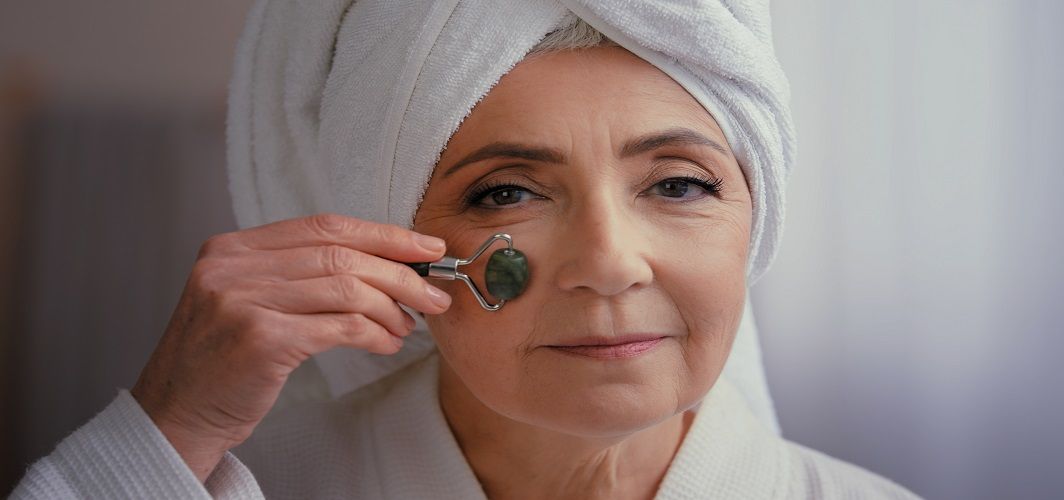General Health
Shingles: Symptoms, Diagnosis, Treatment, Vaccination
7 min read
By Apollo Pharmacy, Published on - 01 September 2023
Share this article
0
0 like

Shingles is a viral infection caused by the Varicella-Zoster virus, the same virus that causes chickenpox. After a person recovers from chickenpox, the virus remains dormant in the nerve tissues, if this virus reactivates later in life, leads to shingles. Symptoms of shingles typically include a painful rash that develops on one side of the body, along with blisters that may break open and crust over. It is important to recognize these symptoms early on, as prompt treatment can help alleviate pain and prevent complications. let's know more about shingles in this blog.
Symptoms of Shingles
Early signs and symptoms of shingles may include:
1. Pain and Tingling Sensations
These can occur a few days before the rash appears and are often described as a burning or shooting pain.
2. Skin Rash and Blisters
The rash usually develops in a band or strip along a specific nerve pathway, and the blisters can be filled with fluid.
3. Itching and Burning Sensations
The affected area may feel itchy or have a burning sensation.
Complications Associated with Shingles
Untreated condition or delayed diagnosis of shingles can sometimes result in complications such as:
1. Postherpetic Neuralgia (PHN): PHN is characterized by persistent pain in the area where the rash occurred, even after the rash has healed.
2. Vision Problems: Shingles can affect the eyes and lead to vision problems or even blindness if left untreated.
3. Neurological Complications: In rare cases, shingles can cause inflammation in the brain (encephalitis) or spinal cord (myelitis).
What Causes Shingles?
The exact reason behind the reactivation of the Varicella-Zoster virus (VZV) is not fully understood. However, certain factors may increase the risk of developing shingles, including:
- Ageing: The risk of shingles increases as you get older, especially after the age of 50.
- Weakened immune system: Conditions or treatments that weaken the immune system, such as HIV/AIDS or chemotherapy, can make you more susceptible to shingles.
- Stress: Emotional or physical stress can trigger the reactivation of the virus.
- Certain diseases: Chronic diseases like cancer or autoimmune disorders can increase your chances of developing shingles.
How is Shingles Transmitted?
Shingles is not directly transmitted among humans. However, if someone who has never had chickenpox comes into contact with the fluid-filled blisters of a person with shingles, they may develop chickenpox but not shingles directly.
Risk Factors for Developing Shingles
While anyone who has had chickenpox can develop shingles, certain factors increase the risk of its occurrence. Understanding these risk factors can help individuals take necessary precautions and seek prompt medical attention. Here are some notable risk factors for developing shingles:
- Age: Shingles is more common in individuals over the age of 50. As we age, our immune system weakens, making us more susceptible to infections.
- Weakened Immune System: People with weakened immune systems, such as those undergoing chemotherapy or with HIV/AIDS, have a higher risk of developing shingles.
- Previous Chickenpox Infection: If you have had chickenpox in the past, the varicella-zoster virus can remain dormant in your nerve tissues. This increases the chances of reactivation and the development of shingles.
- Certain Medications: Some medications, such as those used for organ transplants or to treat autoimmune diseases, can weaken the immune system and increase the risk of shingles.
Diagnosis of Shingles
To diagnose shingles, your doctor would examine the affected area for characteristic symptoms such as rash, blisters, and pain. They would also inquire about your medical history, including any previous episodes of chickenpox or shingles.
Furthermore, laboratory tests and imaging procedures that may help diagnose shingles include:
- Viral Culture: This test involves collecting a sample from the rash or blister to determine if the varicella-zoster virus (VZV) is present.
- Polymerase Chain Reaction (PCR) Test: PCR is a highly sensitive test that can detect the genetic material of the VZV in the collected sample.
- Blood Tests: Blood tests can measure the levels of antibodies against VZV in your bloodstream. An increase in these antibodies may indicate an active infection.
How is Shingles Treated?
Medications used to treat shingles include:
1. Antiviral Medications
These medications can help shorten the duration of the outbreak and reduce the severity of symptoms.
- Acyclovir: Acyclovir works by inhibiting the replication of the varicella-zoster virus, thus controlling the spread of the infection. It is available in various forms, including oral tablets, intravenous injections, and topical creams.
- Valacyclovir: Valacyclovir is a prodrug of acyclovir, meaning it gets converted into acyclovir in the body. This medication offers similar antiviral effects and is often preferred due to its convenient dosing schedule. It's available in oral tablet form.
- Famciclovir: Famciclovir is another antiviral medication effective against the varicella-zoster virus. Like valacyclovir, it is also available as an oral tablet and helps reduce the severity of shingles symptoms and the duration of the outbreak.
2. Pain Management Strategies
Shingles can be extremely painful. Hence, to manage the pain:
- Try Over-the-Counter Pain Relievers: Nonsteroidal anti-inflammatory drugs (NSAIDs) like ibuprofen can help reduce pain and inflammation.
- Use Topical Analgesics and Anesthetics: Applying creams or patches containing lidocaine or capsaicin can provide temporary relief from pain.
- Use Prescription Pain Medications: In severe cases, your doctor may prescribe stronger pain medications to manage the discomfort.
Prevention of Shingles through Vaccination
Shingles can be prevented by getting vaccinated against it. Vaccination not only reduces the risk of developing shingles but also helps in preventing complications associated with the infection.
1. Varicella-Zoster Vaccine (Chickenpox Vaccine)
The Varicella-Zoster Vaccine is recommended for children and adults who have not had chickenpox before.
2. Herpes Zoster Vaccine (Shingles Vaccine)
In India, two types of vaccines are available for shingles prevention; the Varicella-Zoster Vaccine (also known as the Chickenpox Vaccine) and the Herpes Zoster Vaccine (commonly referred to as the Shingles Vaccine).
Consult with your healthcare provider to discuss if vaccination is appropriate for you based on your age, medical history, and other factors.
Recommendations to Manage Shingles at Home
To manage shingles at home, you can follow the measures given below:
- Keep the affected area clean and dry to prevent infection.
- Avoid scratching or picking at the blisters to minimise scarring.
- Gently wash the skin with mild soap and water to soothe irritation. Use a clean towel to pat dry, avoiding rubbing.
- Change and launder clothing, bedding, and towels regularly to prevent the spread of the virus.
- Wear loose, breathable clothing made from natural fibres like cotton to reduce irritation.
- Apply cool compresses or take cool baths to relieve itching and pain.
- Over-the-counter pain relievers like acetaminophen or ibuprofen can help alleviate discomfort.
- Calamine lotion or topical numbing creams may provide temporary relief.
- Incorporate fruits and vegetables into your diet, especially those high in vitamins A, C, and E. Include foods like citrus fruits, bell peppers, spinach, and almonds.
- Drink plenty of water to maintain proper hydration and support immune function.
- Avoid spicy foods, acidic foods (like citrus fruits), and processed foods that may weaken the immune system and aggravate the symptoms.
- Practice relaxation techniques like deep breathing, meditation, or yoga to reduce stress.
Conclusion
Shingles, also known as herpes zoster, is a viral infection caused by the varicella-zoster virus and is characterised by a painful rash that usually appears as a single strip of blisters on one side of the body. Early diagnosis and treatment are crucial in managing shingles effectively. If you experience any symptoms suggestive of shingles, it is important to seek medical attention promptly. Your doctor will evaluate your symptoms and may prescribe antiviral medications to help reduce the severity and duration of the infection.
FAQs
Q. Can stress trigger shingles?
While stress does not directly cause shingles, it can weaken the immune system and increase the risk of developing the infection.
Q. How long do shingles last?
The rash and associated symptoms of shingles typically last for 2 to 4 weeks. However, some individuals may experience lingering pain even after the rash has healed. This is known as postherpetic neuralgia.
Q. Can you get shingles more than once?
Yes, it is possible to have multiple episodes of shingles in your lifetime. However, it is less common for individuals to experience recurrent episodes.
Q. Can the shingles vaccine prevent postherpetic neuralgia?
The shingles vaccine has been shown to reduce the risk of developing postherpetic neuralgia in individuals who still develop shingles despite being vaccinated.
Q. Is Shingles contagious?
Shingles itself is not contagious, but the varicella-zoster virus can be spread to individuals who have not had chickenpox. This can cause them to develop chickenpox, not shingles.
General Health
Leave Comment
Recommended for you

General Health
What Causes Kidney Stones?
When the body does not produce enough urine and too much waste is collected in the blood, it can form kidney stones.

General Health
How Can Facial Yoga Exercise Help You Stay Young?
We live in a world where the only things we do are things like consume fast food, get too little sleep, and not take care of our facial skin, all of which can make us look older. It causes wrinkles, fine lines, sagging skin, and other skin issues like that. You can alleviate this problem by engaging in facial yoga exercises. Check out this blog.

General Health
7 Signs Of Low Blood Pressure You Must Know About
Discover 7 crucial signs of low blood pressure you must be aware of. Recognise symptoms early for timely intervention and better health management.
Subscribe
Sign up for our free Health Library Daily Newsletter
Get doctor-approved health tips, news, and more.
Visual Stories

The Best Exercises for Controlling Blood Sugar Levels
Tap to continue exploring
Recommended for you

General Health
What Causes Kidney Stones?
When the body does not produce enough urine and too much waste is collected in the blood, it can form kidney stones.

General Health
How Can Facial Yoga Exercise Help You Stay Young?
We live in a world where the only things we do are things like consume fast food, get too little sleep, and not take care of our facial skin, all of which can make us look older. It causes wrinkles, fine lines, sagging skin, and other skin issues like that. You can alleviate this problem by engaging in facial yoga exercises. Check out this blog.

General Health
7 Signs Of Low Blood Pressure You Must Know About
Discover 7 crucial signs of low blood pressure you must be aware of. Recognise symptoms early for timely intervention and better health management.